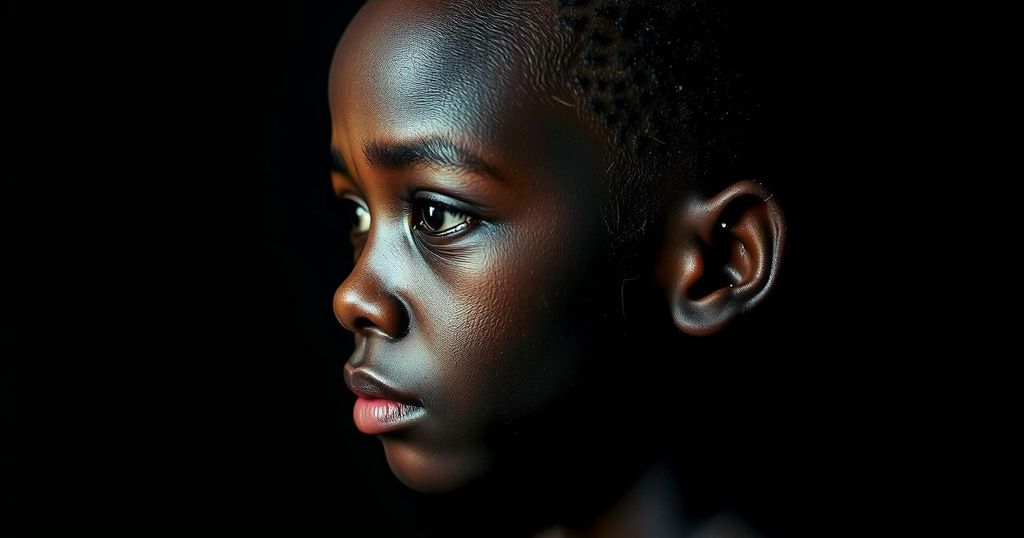The protracted conflict in eastern Congo has resulted in a significant mental health crisis, with a reported 200% increase in individuals seeking psychosocial support at displacement camps in Goma. Despite the escalating need for mental health services and the alarming rise in suicidal ideations among displaced individuals, funding for mental health support remains critically low. The humanitarian situation is exacerbated by ongoing violence, poverty, and sexual assaults, making recovery nearly impossible for many affected individuals and families, particularly women and children.
The ongoing conflict in eastern Congo has precipitated a significant mental health crisis affecting countless individuals. Reports indicate that the number of individuals seeking mental health care has surged as hostilities have intensified. Nelly Shukuru, a displaced woman residing in a camp in Goma, symbolizes the despair felt by many; having contemplated suicide after enduring severe hardships, she expressed thoughts of hopelessness, believing that those who had died were better off than she was. In the first half of this year, there was a staggering 200% increase in the number of people receiving psychosocial support in camps surrounding Goma, rising from approximately 6,600 to over 20,000. This drastic rise in those seeking help reflects a broader trend; the number of individuals reporting suicidal ideations has surged from five per month to over 120. With more than 100 armed groups vying for control in the region, violence and displacement have become commonplace, significantly impacting mental health across affected populations. Children, in particular, are showing signs of trauma due to the persistent violence, displaying symptoms consistent with post-traumatic stress disorder (PTSD) alongside increased incidents of anxiety and depression. Mental health professionals emphasize that the situation is dire, with Innocent Ntamuheza, a psychologist, noting that the number of individuals facing psychological distress rises daily. Despite these alarming trends, mental health support remains severely underfunded, with only 30% of the requested $180 million for humanitarian aid, including mental health services, being allocated this year. Conditions in the displacement camps further complicate recovery; overcrowding, violence, and the omnipresent threat of armed groups exacerbate the psychological toll on residents. Many displaced individuals have shared their distressing experiences, including incidents of violence and sexual assault. Reports indicate a substantial rise in sexual violence against women in the camps, with humanitarian organizations treating thousands of victims each year. While initiatives are underway to train community leaders to identify individuals in need of mental health support, stigma surrounding mental illness often hampers proactive help-seeking behavior. Nonetheless, those who have pursued treatment report beneficial coping strategies, enhancing their ability to manage trauma. Organizations such as War Child are making strides in aiding children affected by the conflict by integrating communication, artistic expression, and play in their therapeutic approaches. The breadth and depth of the mental health crisis in eastern Congo underline a pressing need for increased resources and attention. The profound impacts of chronic violence have eroded the psychological wellbeing of communities, necessitating urgent intervention to address both immediate needs and long-term recovery strategies. Congo’s humanitarian situation, described by the United Nations as among the most neglected crises globally, highlights the critical intersection of conflict and mental health, calling for an urgent reevaluation of support systems to mitigate trauma among its most vulnerable populations.
The ongoing conflict in eastern Congo has had far-reaching implications for public health, particularly mental health. Prolonged violence and instability have disrupted social structures and displaced millions, leading to a notable increase in mental health issues within the affected populations. The humanitarian crisis is compounded by underfunded support services, creating an environment where individuals suffering from trauma, anxiety, and depression struggle to receive the care they need. The escalation of violence, particularly involving multiple armed factions, has led to an increase in instances of sexual violence and other traumatic events, further contributing to the mental health challenges faced by survivors. Amid this backdrop, the need for effective interventions and treatment options has never been more pressing, emphasizing the urgent need for comprehensive mental health strategies in conflict settings.
In summary, the war in eastern Congo has precipitated a grave mental health crisis exacerbated by rising violence and insufficient support services. The marked increase in individuals seeking care highlights the urgent need for mental health resources and interventions. Personal testimonies and rising statistics reflect the devastating toll of conflict on mental well-being, particularly among vulnerable populations such as women and children. Without substantial investment and a commitment to addressing these issues, the cycle of trauma and despair will likely continue to impact the health of communities across the region.
Original Source: apnews.com






